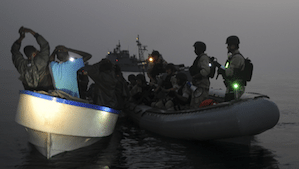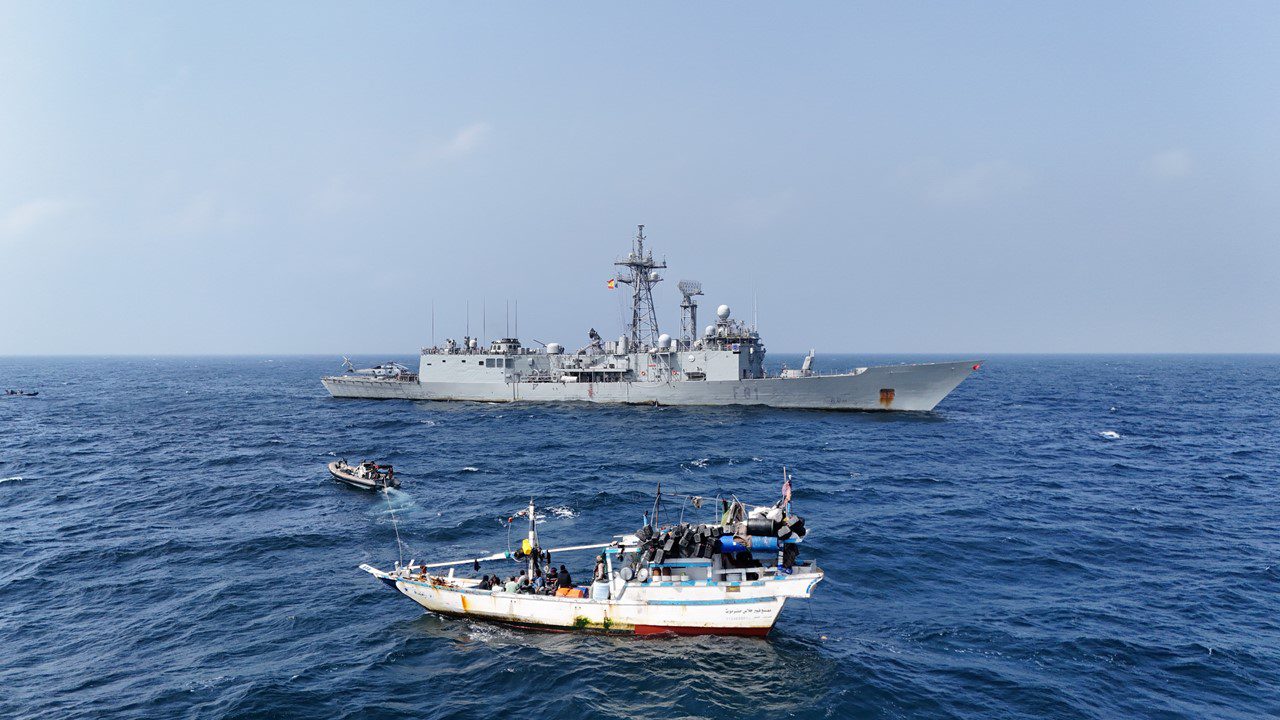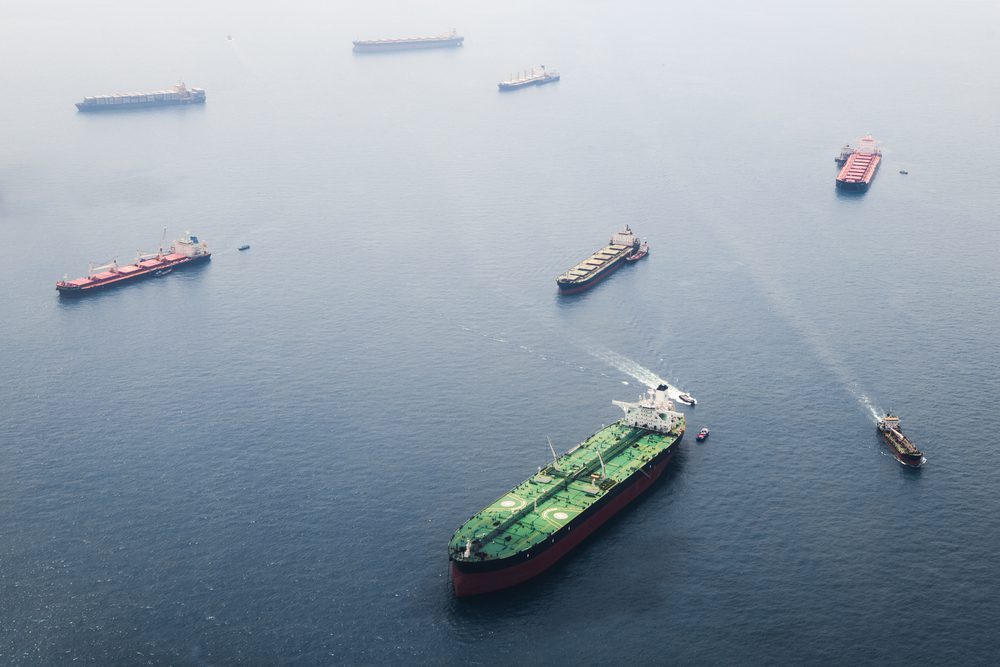Insiders tell how pirates are destroying the system that allows them to flourish.
By Robert Young Pelton, Somalia Report
Somalia Report has identified a trend that indicates that the $4.5M ransom may have been the tipping point for ship owners. Desperate to hit this magic number a number of recent ships have gone through heart breaking betrayal as negotiators reach an agreement only to discover they had been suckered. When discussions begin again the crestfallen owners are expected to dig deeper into that imaginary pot of money to meet the pirate investors’ demands. The bottom line is that the main pirate groups are hurting. Stalled inventory, maxed out ransoms and heavy investments that have not paid off are putting more pressure on getting higher ransoms for the existing ships.
But this may be the beginning of the end.
What the pirates might not have noticed is that ships with the capability to pay these jumbo-sized ransoms have migrated to Best Management Practice (BMP), security on board, hardening, training, emergency drills, establishing secure citadels, and closer coordination with naval forces in the area. The oft repeated mantra that an armed ship has never been taken still rings true and insurance companies demand security and BMP on ships traveling exception routes. Companies like Maersk turn Somali waters into a race course as they zoom by at almost 20 knots, leaving small skiffs bobbing in their wake. The pirate’s pickings are now low sided bulk carriers who have avoided insurance requirements and hope to play the law of averages.
In addition drones and local informants have been used to identify clumsily labeled “Pirate Action Groups” as they set out from land and look for victims. Although some nations use the mandate of preventative or collaborative action it is generally accepted that once the act of piracy commences, violent action can be taken to warn off, disable or kill all members of a pirate group.
The most destructive link to the criminal act of piracy would be the removal of the ransom process. Without the actual cash transfer process going smoothly, piracy would lose its main driver. The ransom process is a criminal act in most countries. Some countries like the UK condone the payment of funds to criminals due to concern for the hostages well being. The skewed logic is that the pirates fully intend to give life and property back therefore the payment itself just expedites the victim’s safety and well being. Other countries (including Somalia) will arrest and convict anyone caught paying money to criminals essentially making the clear statement that ransom payers are collaborating and supporting the crime.
The filmsy moral rationale for piracy has long vanished. Only about 6% of vessels attacked are fishing in Somali waters and most are used for motherships. The “Robin Hood” effect of piracy has also vanished with local communities up in arms from Eyl to Hobyo. They are tired of the violence, drugs, alcohol and hangers on destroying their lifestyle.
The returns of piracy have diminished. Dozens of missing Somalis who went to sea in small skiffs looking for fortunes never to return are testament to the fool’s gold of piracy. Piracy attacks are delivering less and less success forcing them to demand more from their current stolen inventory. There has been a significant drop in ships and hostages held with longer and longer negotiation times. This burns pirate investor money.
The facts are that piracy supports a handful of financiers, a few sea teams and that is about it. The good old days of a quick 90 day turn from grab to gone are over. Somalia’s coastal communities are not awash with wealth. Pirates squander their cash windfalls while investors have put money back into more and more expensive failed missions.
Somali fishermen do not ply their trade with gusto and the entire coastal region of Somalia is a ‘no go’ zone putting pressure on all seafaring Somali’s to survive.
Dealing with the problem of piracy has been a simple line item for ship owners. Less than 1% of all traffic in the region can expect an attack, let alone a ransom payoff.
Pirates are self interested criminals who steal, beat, abuse and sometimes kill innocent people to make money. Their names, phone numbers and locations are known to us, the local governments and we would assume the more sophisticated tracking elements of international governments. Yet nothing is done. Booyah [a known pirate leader] is in prison operating by mobile phone. Garaad [another known pirate leader] is a man about town in Puntland, small armed skiffs are tracked by drones and yet nothing substantial has been done to end this criminal anomaly.
The only thing standing between the status quo and total annihilation is the collective hand wringing of the governments who command the world’s most impressive warships in the region. The maritime business is not set up to fight pirates, navies are. The men and women on the naval vessels are keen to fight pirates but hampered by rules of engagement, the locals on land are ready but frustrated by lack of money and support. Even burgeoning anti piracy efforts in Bosaso have been blocked by the UN, the very agency created to end piracy. It is time to deal a death blow to a tiny band of brigands who hold all of Somalia hostage. Somalia Report encourages insiders to speak out and have their stories, solutions and opinons published freely and without fear of censorship. Please send your thoughts and opinions to[email protected]
This article originally appeared on SomaliaReport.com and is republished here with permission.
© Somalia Report 2011

 Join The Club
Join The Club











